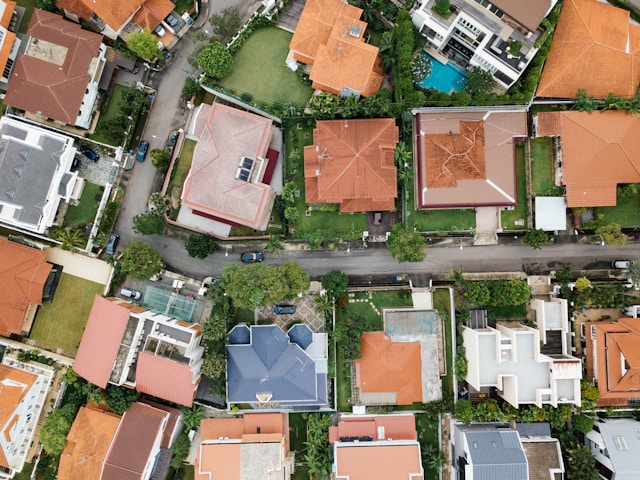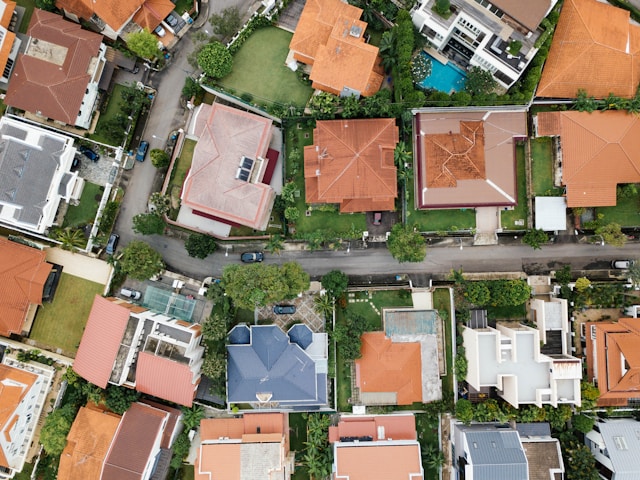
Rent default rises 20% in 6 months as inflation erodes consumers’ income
Since the last quarter of 2022, the rental market has seen an average of 20 percent increase in the house rents paid by residential housing occupiers at various locations, estate agency practitioners have revealed.
The default increase which cuts across various segments of the market – low, middle and high – is a product of the galloping inflation in the country, according to the practitioners. This has eroded product consumers income, leaving them incapable of paying necessary bills including rent.
Besides house rents, Nigerians especially those in the low-income class, have rising food prices and high energy costs to contend with. Both have seen increases that hover between 40 and 50 percent, all happening in the midst of depreciating value of the local currency.
It is expected that long-standing challenges such as product mismatch, currency fluctuation and rising inflation rates will continue to impact the broader real estate sector in the months ahead.
The practitioners add that the increase in default also arises from building material price surge which has compelled landlords to increase their house rents as the materials price rise has not only reduced new housing supply, but also increased the maintenance cost of existing ones.
“Before now, rent default was common among low-income earners and, to a little extent, mid-income earners. But now, rent default is across board. The high end, which hitherto had a low level of defaults because of the calibre of tenants, has seen an upsurge,” Gbenga Olaniyan, CEO, Estate Links Limited, told BusinessDay.
He noted that what was happening in the rental market, which is not an isolated case, was a true reflection of the state of the economy, adding that even though it is not easy for both the tenants and their landlords, the landlords are not ready to play Father Christmas role.
“As realtors, we interface with both tenants and landlords and I can tell you that each has a valid case. Landlords would tell you that they are increasing their rents to enable them to defray rising maintenance cost and even invest in new buildings.
“On their part, tenants say they cannot pay because the economy is bad and that some of the landlords are being too exploitative, taking advantage of the bad economic situation and the rising costs to exploit and short-change their tenants,” he said.
Olaniyan pointed out that the rental market would continue to be volatile for as long as inflation continues to rise and the impact continues to spread across sectors including real estate where the cost of building materials and even hiring labour has become uncontrollable.
Bismarck Rewane, in his July Breakfast Session at the Lagos Business School, Lagos, noted that inflation in the country was nearing tipping point, adding that aggressive interest rate hikes to mop up excess liquidity and taper inflation was not providing the needed solution.
According to him, “interest rate hike could be ineffective in containing inflation because most of the stoking factors are structural and cost-push.”
He noted that the state of the country’s economy today was such that “analysts are bemused, markets are confused while speculators are amused,” adding however that Nigeria is not alone in the crisis that is rocking global economy.
He sees a positive growth outlook that boosts activity in the real estate sector, adding that the sector is poised to ride on sustained economic growth momentum to achieve a projected 5 percent expansion in 2022.
There was a significant uptick in market activity in the sector in the first half of this year and Rewane says the entrance of international tech companies will continue to underpin demand for office space while Microsoft launch of its Africa Development Centre is a significant occupier activity during the period.
“The residential sector is emerging as the market’s bright spot; there is growing shift in investor interest from the high-income market to low-income market; the large market size and strong demand is fuelling attraction to ‘low-income’ market,” he noted, pointing out that the demographics here include students and young professionals.
Rewane projected that, going forward, inflation rate would continue to erode consumers’ income and this would lead to a widening in vacancy factor, just as higher interest rates would weigh on new investments in the sector.
Source:Businessday.ng
Similar Topics
To address ongoing challenges in the housing sector, Uzo Oshogwe, the Managing Director and Chief...
a day ago Read MoreThe House of Representatives has approved a significant budget increase for the Ministry of...
4 days ago Read MoreThe Osun State Government, in partnership with foreign collaborators, has initiated a reforestation...
10 days ago Read MoreDr. Seyi Olufemi, the CEO of Casafina Development Company, has counseled investors to purchase...
14 days ago Read MoreThe Economic and Financial Crimes Commission (EFCC) is tightening regulations on estate surveying...
18 days ago Read MoreNigeria has attracted $600 million in real estate investments over the past 13 years, according to...
23 days ago Read MoreThe real estate sector is still struggling despite its potential as economic challenges hinder...
26 days ago Read MoreThe Financial Caucus of African Ministers of Housing and Urban Development has elected Ahmed...
29 days ago Read MoreAbuja was ranked as the least expensive African city for foreigners to reside in by the American...
29 days ago Read MoreDr. Iziaq Salako, the Minister of State for the Environment, announced that Nigeria lost...
a month ago Read MoreLeading figures in the real estate industry have expressed concerns about unethical practices by...
a month ago Read MoreNigeria has experienced approximately 604 building collapses between 1974 and May 30, 2024,...
a month ago Read MoreIn the past twelve months, Governor Peter Mbah of Enugu State, South East Nigeria, has shown a...
a month ago Read MoreLand buyers at the Oko-Orisan waterfront residential scheme, developed by the Lagos State...
a month ago Read MoreA development that is apparently strange in this clime is brewing as construction workers in...
a month ago Read MoreThe company’s Chief Executive Officer, Mr Odunayo Ojo, highlighted UPDC’s unwavering...
a month ago Read MoreThe real estate sector has undergone significant regulatory changes impacting housing market...
a month ago Read MoreThe Nigerian Institute of Quantity Surveyors (NIQS) has announced plans to establish a...
a month ago Read MoreNyesom Wike, the Minister of the Federal Capital Territory (FCTA), announced that the FCT...
a month ago Read MoreAkintoye Adeoye, the newly elected President of the Real Estate Developers’ Association of...
a month ago Read More


















